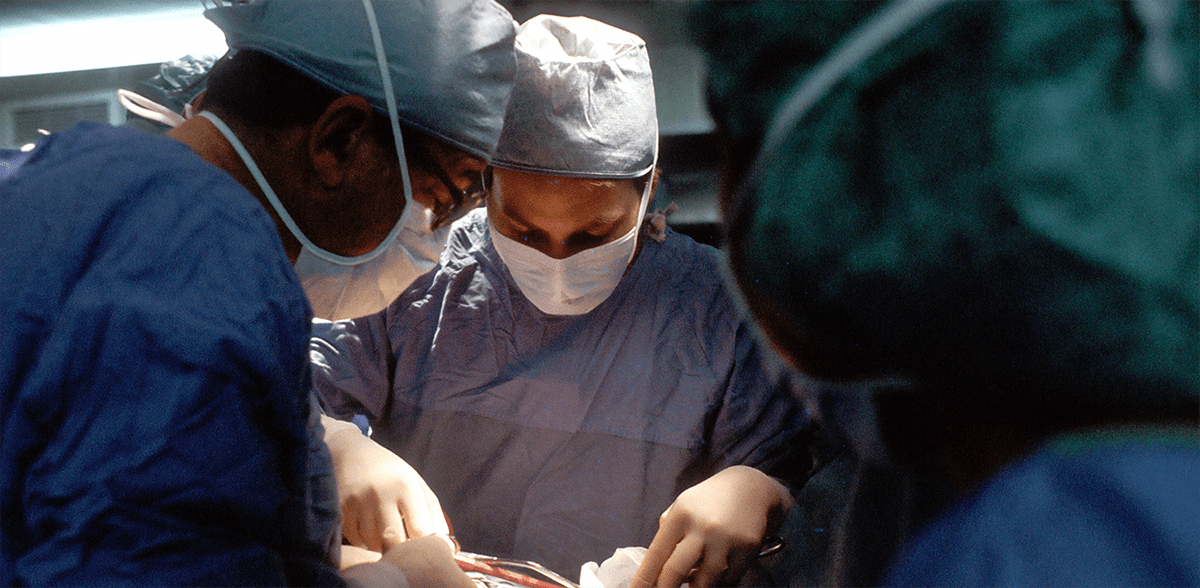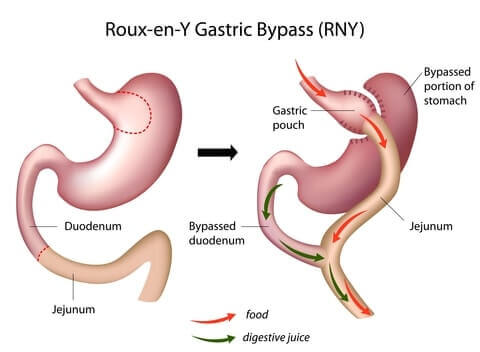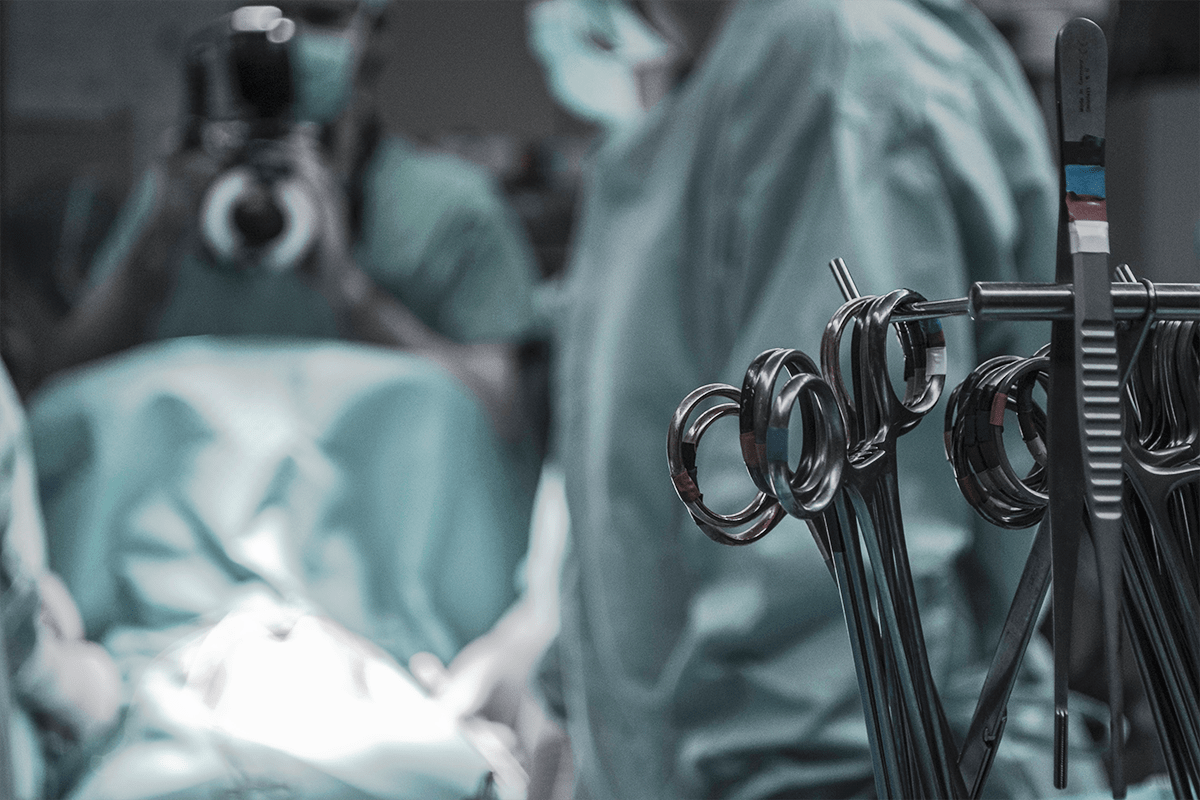
If you have researched weight loss or bariatric surgery, you have probably heard the term "gastric bypass". But do you really know what it is all about and how you lose weight from this type of surgical procedure? In this blog post I will detail the science behind this weight loss procedure and exactly what happens to the stomach—you don't want to bypass this, believe me.
Gastric bypass surgery, otherwise commonly referred to as Roux-en-Y Gastric Bypass in the medical field, is the most popular surgical bariatric procedure due to its high effectiveness and impressive results. On average, patients lose about 65-75% of their excess weight. This is primarily a result of the shrinking of the stomach, which results in the patient being restricted in their food consumption.
Before reading, review these terms for a better understanding.
1. Gastric Bypass – A surgical weight loss procedure that is a result of bypassing the stomach and part of the small intestine to promote weight loss.
2. Jejunum – The middle part of the small intestine below the duodenum.
3. Duodenum –The first and shortest part of the small intestine that aids in the absorption of food.
4. Malabsorption – A condition in which the small intestine can not absorb all the nutrients from the food consumed.
5. Laparoscopic – A method of surgery that creates small incisions in the abdomen and is performed using a camera. This type of procedure is also known as minimally invasive surgery.
How it Works:
The gastric bypass surgery does exactly what it sounds like - it allows food to bypass the stomach and part of the small intestine to prohibit excess consumption. Gastric bypass surgery makes the stomach much smaller and cuts off about 30% of the small intestine. As a result, patients will feel full faster, even when only eating about half the amount of food they used to consume. And since weight gain is a result of the over consumption of calories relative to the amount that is burned, the gastric bypass works to encourage weight loss by restricting the amount of calories that can be consumed.

The New Way of Digestion.
In the normal digestion process, food passes through the stomach and enters the small intestine, where most of the nutrients and calories are absorbed. The food then passes into the large intestine (a.k.a the colon).
The gastric bypass works to create a small part of the stomach, essentially a stomach pouch roughly the size of an ping-pong ball, that is then connected directly to the middle portion of the small intestine (jejunum). As a result, the rest of the stomach and the upper portion of the small intestine (duodenum and first portion of the jejunum) is bypassed.
Additionally, since there is a shorter length of the small intestine to absorb nutrients, gastric bypass patients may experience mineral deficiencies. Therefore, many physicians require patients to take supplements to ensure they are receiving the appropriate amount of vitamins and minerals to sustain a healthy lifestyle.
The obvious benefit of gastric bypass surgery is weight loss.
Traditionally, surgeons would claim that weight loss surgery was effective because it resulted in eating less (restriction) and absorbing fewer calories (malabsorption). Although this is true, there are more important mechanisms as to why patients lose weight following bariatric surgeries.
Based on current research, physicians and educators believe that weight loss as a part of gastric bypass surgery is a result of bypassing the duodenum coupled with changes in a patient's hormone levels. Indirect evidence of these hormonal changes has been recorded as a result of most gastric bypass patients with diabetes now having normal glucose control (cure of the diabetes) prior to even losing weight.
The future of gastric bypass surgery is much safer.
In the past, a gastric bypass was performed by creating a large incision. Not only is this unappealing, but doing an open operation carries more surgical risk.
Currently, all of these operations are performed laparoscopically (TV camera surgery) or even with the surgical robot. As bariatric surgeries have evolved, so has the risk of surgery. Many patients who know they need to lose weight are afraid to consider the option of weight loss surgery because of the perceived risk. However, a laparoscopic gastric bypass has less risk then many other commonly performed abdominal surgeries. Think about that.
I always encourage our bariatric patients to consider the condition of obesity as a chronic disease. Like any other medical problem or chronic disease, it must be treated. There are multiple treatment options and surgery is one part of curing the disease of obesity.
To learn more about losing weight and your surgical options, schedule a time to come to one of our seminars.










